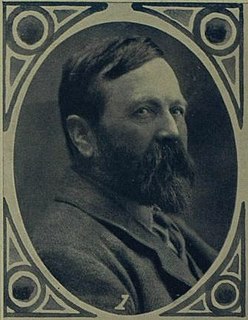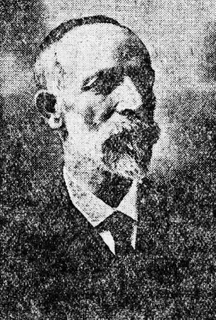Related Research Articles

Colne Valley is a constituency represented in the House of Commons of the UK Parliament since 2019 by Jason McCartney of the Conservative Party. Since the 1964 general election, the only occasion when the winning candidate's majority exceeded 10% of the votes cast was in 1992, and three different parties have held the seat during this period. Since 1987 it has been won by either Conservative or Labour candidates.

Fred Bramley was the second General Secretary of the British Trade Union Congress (TUC).

Sir William Pollard Byles was a British newspaper owner and radical Liberal politician.
Fred Barton was a British socialist politician.
The Barnsley by-election, 1897, was a by-election held on 28 October 1897 for the House of Commons of the United Kingdom. It was notable for its role in the development of the Independent Labour Party.
France Littlewood was a British socialist activist.

Edward Robertshaw Hartley was a British socialist politician.
A by-election was held for the British House of Commons constituency of Sheffield Attercliffe on 5 July 1894. It was the first parliamentary election contested by the Independent Labour Party.

Sir Ben Turner was an English trade unionist and Labour Party Member of Parliament (MP) for Batley and Morley from 1922 to 1924 and from 1929 to 1931.

Allen Gee was a British trade unionist and politician.
The Colne Valley by-election was a Parliamentary by-election. It returned one Member of Parliament to the House of Commons of the United Kingdom, elected by the first past the post voting system.

Thomas Russell Williams was a British socialist politician.
Frederick Shaw was a British socialist activist and trade unionist.
Thomas McKerrell was a Scottish trade unionist and politician.
Wilfred Lanceley Heywood was a British trade unionist.

William Bland was a British politician and trade unionist.
Isaac Brassington was a British trade unionist and political activist.
John Badlay was a British politician.
The Colne Valley Labour Union (CVLU) was a political party based in the Colne Valley, in Yorkshire, in England. The first labour party organised on the basis of a Parliamentary constituency, it successfully backed Tom Mann as secretary of the Independent Labour Party, and Victor Grayson as the local Member of Parliament. Its successor is the Colne Valley Constituency Labour Party.
James Tattersall was a British political activist.
References
- ↑ The American Federationist, vol.7, p.309
- 1 2 R. B. Perks, The new Liberalism and the challenge of Labour in the West Riding of Yorkshire 1885-1914 with special reference to Huddersfield, p.164
- ↑ R. B. Perks, The new Liberalism and the challenge of Labour in the West Riding of Yorkshire 1885-1914 with special reference to Huddersfield, p.332
- ↑ David James, The Rising sun of socialism
- ↑ David Clark, Victor Grayson: Labour's lost leader, p.16
- 1 2 Duncan Tanner, Political Change and the Labour Party 1900-1918, p.265
- ↑ Woodworkers, Painters & Buildingworkers Journal (1944), p.138
| Trade union offices | ||
|---|---|---|
| Preceded by W. J. Vernon | President of the Trades Union Congress 1900 | Succeeded by C. W. Bowerman |
| Party political offices | ||
| Preceded by Owen Connellan | Trades councils representative on the National Executive Committee of the Labour Representation Committee 1902–1903 | Succeeded by Ben Turner |
| This article about an English politician is a stub. You can help Wikipedia by expanding it. |